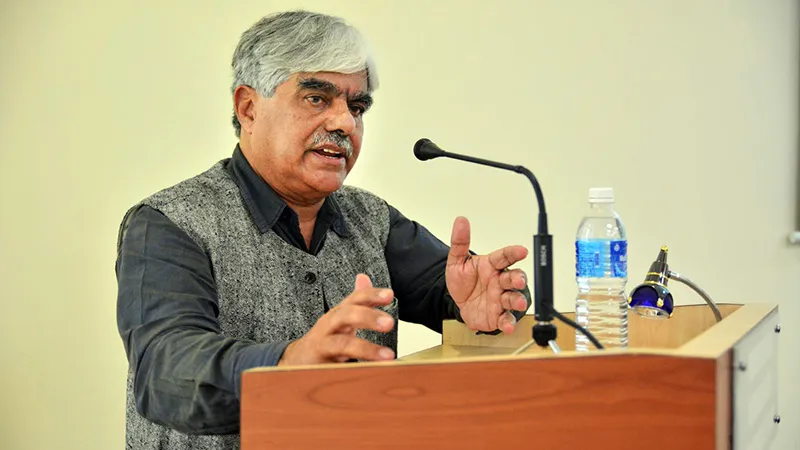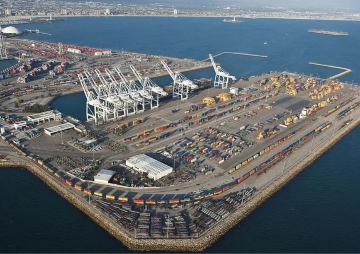The challenges that Japan and India face are largely complementary and thus hold promise for enhancing ties. A robust India-Japan partnership will support and promote India's increasingly assertive and strong role as well as Japan's leading position in the east Asian region.

One of the ironies about Japan has been the fact that it has the second highest level of poverty among the OECD countries besides an ageing population and a large number of temporary workers though it is the third largest economy in terms of GDP, fourth in purchasing power parity and currently the second largest developed economy.
This surprising fact was pointed out by Prof. Brij Tankha while speaking at a lecture-discussion titled "Japan: Redrawing Post-War Boundaries", organised by Observer Research Foundation, Kolkata Chapter, on February 22, 2014. The former professor of Modern Japanese Studies of the Delhi University drew attention to the challenges that the Japanese at present face at the political, economic and social levels.
Prof. Brij Tankha said contemporary Japan needs to engage intellectually more deeply with its society to build a better basis for its political, economic and strategic future. He pointed out that in post-war Japan, there was a splintering of the political consensus and consequently a sharpening of political and social differences, which is reflected in the way the country has evolved since. Also, the entitlement to security, which is part of the Constitution guaranteeing defense of the nation along with the protection of basic life for the people, means that the government must address the increasing insecurity within which the people live.
He said since the arrival of the current Prime Minister of Japan, Shinzo Abe, there has been a marked shift in the way internal policy has been structured in the country. Since 1997, as the bureau chief of the ’Institute of Junior Assembly Members Who Think about the Outlook of Japan and History Education’, Abe has advocated the reform of history textbooks. He has questioned the extent to which coercion was applied to force ’Comfort Women’ to work in brothels for the Japanese army, he dismisses Korean criticism as foreign interference in Japanese domestic affairs. In 2012 Abe headed the liaison group of parliamentarians cooperating with the Shinto Association of Spiritual Leadership, a body that aims to restore traditional Japanese spiritual values weakened by postwar prosperity, promote the central place of the imperial house in Japanese life and create a new constitution built on Japanese national character. The emphasis in terms of domestic reform has been a clear return to reaffirming national pride.
Prof. Tankha pointed out that, with respect to foreign policy, one of the most immediate issues has been the long standing dispute with China over the Diaoyu/Senkaku islands. With chances of resolution being slim and with U.S reservations in the matter, it is uncertain how the fate of these islands would turn out. The rise of China is perhaps the most important factor determining Japanese worldview at the moment and it will be important to see how the country responds to this in the long run.
Biswa Nath Bhattacharyay, former advisor/director of the Asian Development Bank, Manila and visiting professor at the University of International Business and Economics, Beijing, said that the economic path set out for Japan under the Abe regime, which is popularly known as "Abenomics", is a mix of inflation, government spending and a growth strategy designed to jolt the economy out of the suspended animation during more than two lost decades. The country is also taking steps towards fiscal stimulus, structural reforms and most importantly, a programme of geopolitical rebranding and constitutional change to return Japan to its rightful place as a world power. Besides these, the government is also turning towards more dynamic ways of reviving its economy, politics and social life.
He said nevertheless there are several challenges Japan is facing today -- such as high gross debt, lobbies resisting reform and a shrinking workforce. Prof. Bhattacharyay in his presentation also looked at the areas of cooperation that exist between Japan and India with the two economies complementing each other in many areas, & also sharing common interests on issues relating to securing energy resources, environment protection, climate change and fighting international terrorism.
The challenges that Japan and India face are largely complementary and thus hold promise for enhancing ties. For instance, Japan is a geographically small country with huge capital surplus but scarce labour force whereas India is a geographically large, capital deficit country with abundant labor force. In conclusion, he observed that a robust India-Japan partnership will support and promote India’s increasingly assertive and strong role as well as Japan’s leading position in the east Asian region.
The views expressed above belong to the author(s). ORF research and analyses now available on Telegram! Click here to access our curated content — blogs, longforms and interviews.




 PREV
PREV

